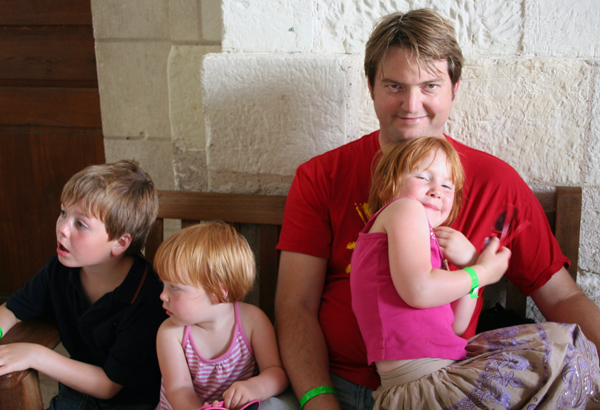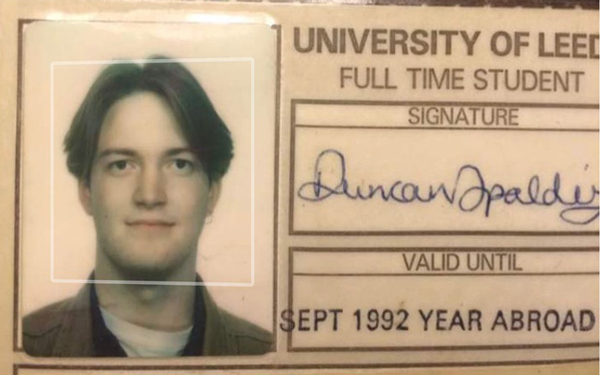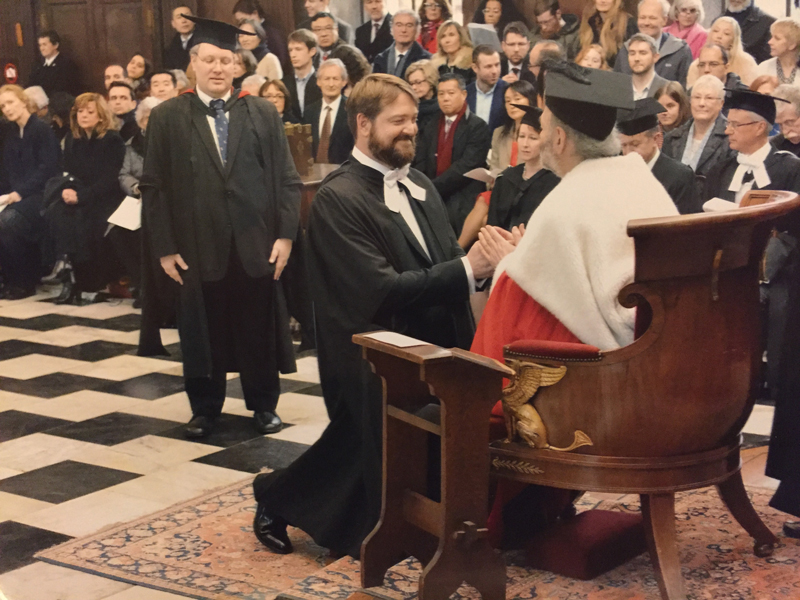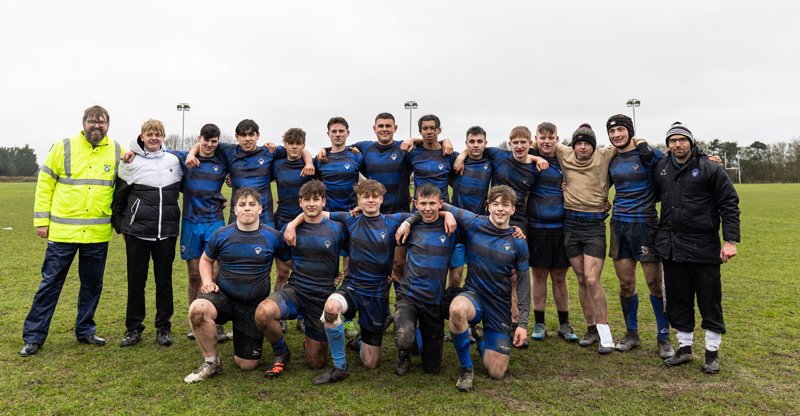Like many of the nicest people in education, Duncan Spalding is under the impression he couldn’t possibly be important enough for a Schools Week interview.
This is obviously nonsense, and I ignore his protests (to name but a few interesting things: he’s part of the influential Headteachers’ Roundtable and runs the only secondary in Norfolk that’s not an academy.).
Without making too much of this, it does seem to be the sort of modesty that seems to typify Spalding’s approach to leadership.
Having joined as a languages teacher, he has now worked at ‘good’-graded Aylsham High School for 25 years – the last 13 years as its head. He’s not stayed so long because he’s a Norfolk man – Spalding grew up in Dorset – but he appears to have embedded himself and his family into the community.
I ask him why he was initially reluctant to chat.
“There’s a lot to be said for quietly getting on with what you’re doing,” he says slowly. He used to work for a headteacher called Tom Widdows when first at Aylsham High School, and he quotes him now.
“Tom would say to me, ‘You earn your reputation locally’. It may be nice to have a sense of a national profile, but actually, it’s in your own community that it really matters. It’s about, what’s the truth on the ground?”
There’s a lot to be said for quietly getting on with it
So it makes sense the initiative Spalding is particularly enthusiastic about involves local parents. Before lockdowns, the school offered maths GCSE courses for parents, with about seven attending. Now that Covid restrictions have eased, the offer is back on – along with other courses too.
“Adult learning opportunities have been hit big time by budgets, and what we’re trying to do now is tentative forays to rekindle that,” he says.

There has been a 50 per cent fall in spending on adult education since the Conservatives arrived in power in 2010, and the number of adult learners has fallen off a cliff. Subsidies for adult education institutions, such as the Open University, have also gone.
We’re trying tentative forays to rekindle adult learning opportunities
So Spalding’s school has run beginners’ French and British Sign Language lessons, creative writing and home cookery courses, adult swimming and craft classes, and more recently A-level sociology. A new school building means he has more space to broaden the offer further. The adult just needs a familial link ̶ as a parent, grandparent, aunt or uncle ̶ to take lessons.
Spalding’s eyes light up as he tells me he bumped into a learner parent in the school car park recently.
“She was coming in to do the sociology course! She’d already done the maths GCSE,” he smiles. “At the moment, it’s a tiny thing, but we’d like it to become bigger.”
Spalding’s enthusiasm is in line with the evidence. In educationalist John Hattie’s 2008 study, Visible Learning: A Synthesis of Over 800 Meta-Analyses Relating to Achievement, the author finds that “the effect of parental engagement over a student’s school career is equivalent to adding two or three years to that student’s education”.

Exactly how to improve parental engagement is not entirely clear, with the Education Endowment Foundation stating “developing effective parental engagement is challenging and needs careful monitoring”.
But Spalding and his team are acting on the basis that offering adult education opportunities can only be a good thing.
The school has been inventive with funds, raising £10,000 through grant bodies including housing associations, local retailers and the town council. Learners also pay a nominal fee that can be reimbursed, and have donated about £1,000 so far.
Spalding appears to have been influenced by watching his own mother, Marilyn, retrain when he was young. He cites her as a “force of nature” for him and his brother, and a great loss to them when she died of cancer when he was just 29 years old.
“Neither of my parents went to university, but my mum got her English O-level by going to night school,” he says. After working in a chocolate factory, his mum joined a wine and spirits distributor.
“She was always successful at what she did, and she eventually did a ‘Masters of Wine’ diploma.” Spalding never forgot that it was her employer who paid for that course.

It’s not the only family-oriented initiative Spalding is backing. His school belongs to a foundation trust of nine local authority schools set up in 2011, all primaries and one infant school.
The collective model means the schools get a ‘family learning coordinator’, who puts on family learning days. It’s possible because one of the trustees, the Rotary Club of Aylsham, sponsors the events.
“We’ve done reading festivals, or we put on science activities, crafts and making. Anyone who wants to come gets a free day of activities.”
Spalding’s school also belongs to a smaller federation, a more formal legal structure formed in 2016, of three schools. The other two are Bure Valley junior school and John of Gaunt Infant and Nursery school.
It was prompted partly by the junior school struggling with performance, and Spalding taking a personal interest because his own children were there. Rather than pull them out, he offered support.
“I think it’s important to run a school you’d be happy sending your own children to,” he says. All four of his children have been educated at Aylsham High.
The federation also shares a ‘parent support adviser’. “That’s someone who is not a teacher, who is well-known to our parents and families, someone who can go to their home to support.” Similarly, the federation has a charitable trust to fund a social, emotional and mental health (SEMH) officer for families.
Such roles are a leftover from New Labour’s old ‘extended schools’ agenda, Spalding adds (part of the Every Child Matters programme, launched in 2003).
The agenda encompassed support services for children, after-school clubs and cultural and sporting activities, to adult and parenting classes – anything that went beyond the core function of the classroom.

It’s arguably not an approach that’s been given much public support since 2010, with the focus from the Department for Education and Ofsted on the knowledge-rich curriculum instead.
A big influence on Spalding’s ‘extended school’ focus is a 2002 book by Stephen Gorard, professor at Durham University, called Creating a Learning Society?: Learning Careers and Policies for Lifelong Learning.
Spalding says it taught him that “to encourage young people to be learners, we should surround them with lifelong learners”. He believes this is at the core of great schooling.
“There’s an element in education, where there’s a lot of ephemera. There’s a lot of things that bubble up that then evaporate,” he explains. “But can you actually get to the bottom of things that stick, and work hard on them? In terms of schools, it’s great relationships, a really supportive environment and great teachers.”

The recent focus on working together, from a policy perspective, has been schools doing this with each other in academy trusts. Perhaps schools working with their communities has been a little lost?
It’s why Spalding isn’t wild about the government’s proposals for all schools to be in trusts by 2030. From his perspective, he and his two networks of schools already have the advantages of cooperative working.
“I don’t know what the huge incentive would be for us to do so – we’re already working as a family of schools.” He adds that for smaller schools, joining an academy trust can also feel like “handing over control or a sense of agency”.
Instead, a key measure of success for Spalding is how embedded schools are with local families. That perhaps explains his relative modesty: such embeddedness takes time, and isn’t always easy to measure.
“Our strapline is it takes a whole community to raise a child,” he smiles.














Sounds like this Head is not trying to climb the greasy pole of salary rises by becoming a bigger school or TRUST – and taking over other schools. Also – looks like a family man -who likes children – apart from his own! That ought to be the fist criteria when choosing a Headteacher!! Pupils and Parents and staff just know when they have someone as a Hhead who cares! ( NOT about more money and self progression for themselves!)
My granddaughter attends this school and she’s done well within it’s structures. One of the problems that the school has is it’s dispersed catchment area, with some pupils being bussed up to seven miles each way. Add to that the lack of rural public transport, I think it means that parental engagement outside the actual town could probably still be improved. That isn’t to knock the school, I think it’s a great example of what can be done in an area of quite low population density.
Final comment: A Headmaster sets the tone of a school, when the staff “buy in” to that, it makes the school what it is, for better or worse. I think in Aylsham’s case it’s for the better
I had the TOTAL pleasure of being on the Governing Body of the Trust. Duncan is one of the most gentle and genuine souls I’ve ever had the pleasure of working with. And of course that is reflected in everything Aylsham High School is about.